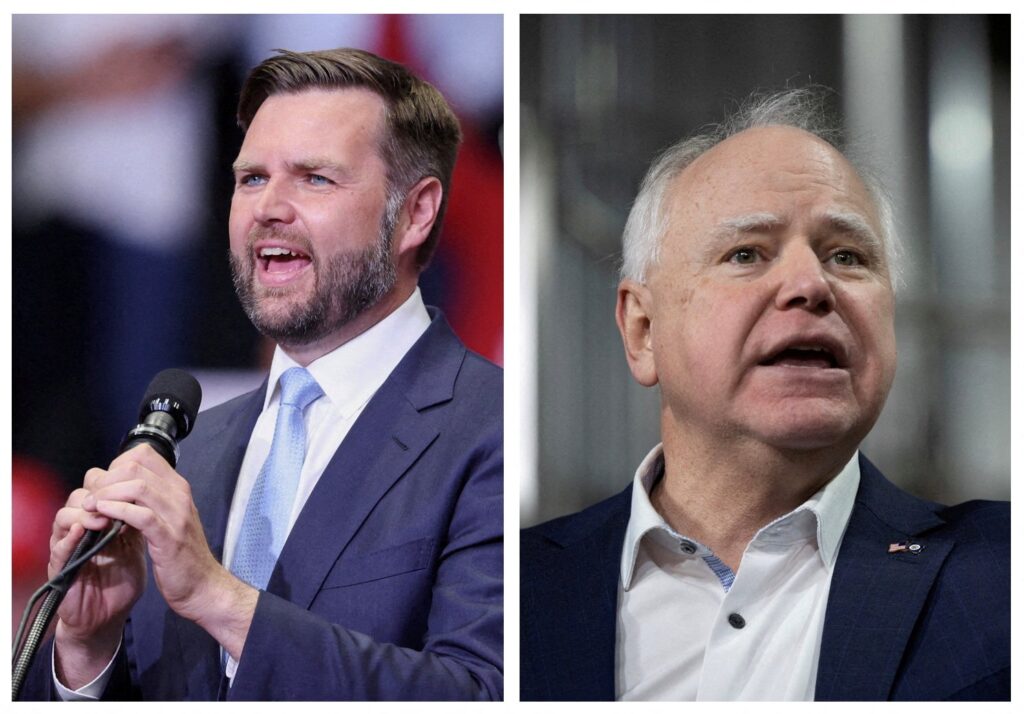
by Kate Scanlon, OSV News
WASHINGTON (OSV News) — While the selection of a running mate in recent decades has had little discernible electoral impact on elections, experts told OSV News the selection of vice presidential candidates can be a signal of how a presidential candidate intends to campaign or govern, including in areas of interest to Catholics such as abortion, climate, immigration and labor.
Vice President Kamala Harris — who secured the Democratic Party’s nomination for president shortly after President Joe Biden ended his reelection bid in July and endorsed her — selected Gov. Tim Walz, D-Minn., as her running mate Aug. 6. Weeks earlier, on July 15, former President Donald Trump named Ohio Sen. JD Vance, as his running mate on the Republican ticket.
The selection of a running mate “can shift perception of the presidential candidate’s ideology,” said Christopher Devine, an associate professor of political science at the University of Dayton, Ohio, and a leading expert on vice presidential candidates who co-wrote “Do Running Mates Matter? The Influence of Vice Presidential Candidates in Presidential Elections.” In that respect, Devine told OSV News that both Trump and Harris “passed on an opportunity” to shift voters’ perceptions of them with their selections.
“So in 2020, Kamala Harris was perceived to be further to the left than Joe Biden, and opinions of her ideology shifted perception of Biden’s ideology,” Devine said. “So basically, the further people thought that Harris was to the left, the further they thought Biden was to the left.”
Stressing that a selection of a running mate doesn’t generally come down to any single factor — and can include electoral strategy, coalition building, or even chemistry between the pair — he said both presidential candidates chose running mates to whom they are closely ideologically aligned.
“What does matter most to voters is what they think of the presidential candidate, and that is what can be influenced by the choice of running mate,” Devine said.






